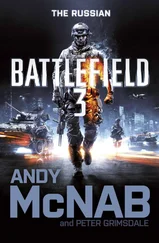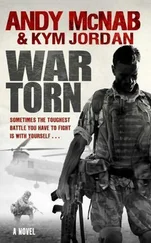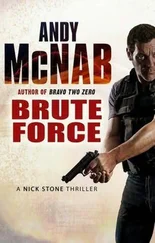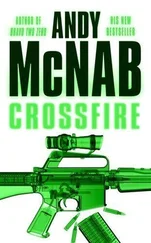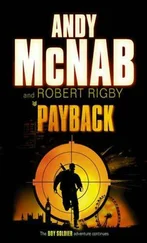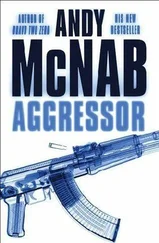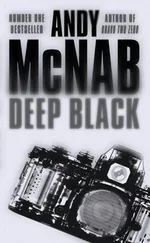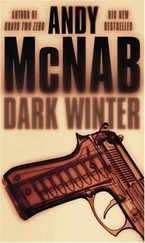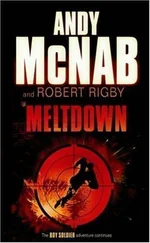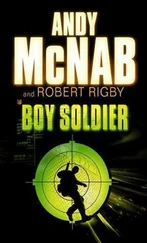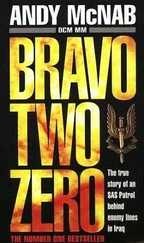Majid Forsheh was from the Ministry of Information. He’d been assigned to me at the personal behest of the minister, he proudly informed me, to attend to my every need for the duration of my stay in the Islamic Republic.
One look at Majid, with his white shirt buttoned all the way up and no tie – an evil Western invention – told me he wasn’t just here to help me on and off the buses. Everything about him reeked of security. But what had I expected? If it was an open secret that defence exhibitions were crawling with spooks, then it was a foregone conclusion that I was going to get a minder. But that was OK, because I had no choice. Getting what Julian wanted – and, more importantly, what I wanted – was what I was here for. I’d just have to work around him.
Majid insisted on carrying my case as we walked to his car. ‘Did you have a pleasant trip, Mr Munley?’
‘Why don’t you call me Jim?’ I gave him a five-hundred-watt smile. ‘Fantastic, mate. Great passengers, good food and first-rate in-flight entertainment. I’ll never be touching British Airways again.’
Majid beamed like a lottery winner. ‘And what do you think of our new Imam Khomeini International Airport?’
‘I think the Ayatollah would have approved. Beats our Terminal Five hands down.’
‘Yes, it is most impressive, is it not, Mr Munley?’
We’d established, then, that Majid didn’t do sarcasm – and that he didn’t like the name Jim. Maybe I should have kept it more formal.
We stopped by a Mercedes E-class that had pulled over in a bus lane. A guy in a short-sleeved white shirt – buttoned up, of course – had been pretending to read a newspaper as he sat behind the wheel. He awoke with a start when Majid sprang the boot and shot out to help with my bags long after the moment had passed. He was in his sixties and balding, but had forearms the size of logs and shoulder muscles that rippled under his shirt. Wrestling was a big thing here, and this old boy looked like he could still go a few rounds.
Majid sat in the passenger seat. I got in the back. The airport’s public-address system called the faithful to prayer just as the sun began to set over the distant mountains.
‘I expect you are tired, Mr Munley, so we will go straight to your hotel. You are booked into the Bandar, are you not? Three stars. A very nice hotel, very central. Your people chose well.’ I caught his smile in the rear-view mirror. ‘This is your first time in Iran?’
My first time, I acknowledged. But on the basis of what I’d seen so far, it certainly wouldn’t be my last.
He turned around and shook my hand. ‘Then welcome. I hope you will enjoy your stay here very much.’
The wrestler pulled out of the bus lane and almost ran into a taxi. There was a screech of brakes and a sudden whiff of bubbling rubber, then an angry exchange between the two drivers. But one glance at Majid and the other guy got right back into his box.
That told me just about everything I needed to know. I’d been placed very firmly in the tender loving care of the IRGC’s Intelligence Branch.
‘The one and only difficulty with our new airport, Mr Munley, is its distance from the city centre. It will take us more than an hour to reach the hotel. No doubt you have heard about our traffic, Mr Munley.’
And the pollution, I felt like telling him, but thought better of it. Not that Majid took my silence as an invitation to shut up. I was getting the full Thomas Cook treatment.
‘Fortunately, we have a very good modern metro system. There are three different types of taxi, too. The yellow metered ones are best. There are also white non-metered taxis that ply certain routes, almost like a bus. And then there are private cars run as taxis, mostly by people in their spare time to supplement their income…’
He waved a hand theatrically. ‘But you don’t need to worry about any of this, Mr Munley, because for as long as you are here you are our guest and all your travel needs will be taken care of. The driver and I will pick you up at your hotel in the morning, I will be your escort at IranEx, and if you have any desire to see our city, then we will be only too happy to take you anywhere you please. My government wants your stay in Iran to be a memorable one.’
‘That’s great, Majid, thank you.’
These lads are OK, nine times out of ten. They’re very much like me in a way, victims of circumstance. Most think differently from what they say about the place they live because they have to live there. Most just toe the line and try to get by as best they can. The nutters who believe all the bullshit can normally be sniffed out very quickly. And even they eventually get to realize it’s all bollocks, no matter what side you’re on.
‘It is important to us that you see Iran in its true light. As a man of words, Mr Munley, I am sure you will already know that Iran is not the place it is characterized to be by certain sections of the West’s media. We are an open, democratic society and our only interest is in fostering peace.’
Try telling that, I thought, to the relatives of almost a hundred dissidents killed by Iranian assassins outside Iran in the thirty years since the revolution – or of the victims of the two hundred or so terrorist attacks around the world that had supposedly been given the backing of Altun and his mates.
Shia militias had been supplied by Iran, via Altun, with highly advanced IED technology, specifically to target our troops in southern Iraq. Missile technology was supplied on a regular basis to Hamas and Hezbollah. The list was endless. The missiles for Hamas and Hezbollah were aimed at Israel, even though there were tens of thousands of Iranian Jews, some of whom were in the Iranian parliament. They saw Israel as Zionist, not Jewish.
I treated Majid to another broad smile and turned my head towards the window. That’s just the way it is. If this lot weren’t the bad guys, then someone else would be. And I wasn’t looking for a cuddle.
We left the airport approach and drove past a hotel decorated with dozens of flags, not one of which I recognized. As we joined the newly tarmacked road for Tehran, I noticed some bodies standing on the roof of a brand-new multi-storey car park at the airport perimeter. They looked like soldiers or police, some kind of security presence. One was wearing a peaked cap.
There were three of them. The one with the cap had what looked like a radio pressed to his ear. Another was talking into a mobile phone, and the third was using binoculars to scan the runway.
Majid followed my gaze and shook his head. ‘Do you have these people in your country, Mr Munley?’
‘Sure. We have security everywhere. Brits are the most spied-on citizens in the world.’
The corners of Majid’s eyes creased in confusion. He looked almost hurt. ‘Mr Munley, I am not talking about surveillance. The people on this roof are interested in the aircraft that take off and land from this airport. It is their – how do you say? Their hobby?’
We hit the traffic in the southern suburbs and ground to a complete standstill. With petrol at about 5p a gallon, why would anyone bother to walk?
The road signs were in Farsi and English, and everywhere I looked I saw Paykans – the Iranian-built copy of the Hillman Hunter, a car that went out of production in Britain forty years ago. My dad used to have one when I was a kid. They only stopped making these things here in 2005. Not a moment too soon, judging by the shit coming out of their exhaust and adding to the thick smog. They looked like dustbins on wheels alongside the brand-new Renaults, Volvos, VWs and all the latest Japanese models on display.
Читать дальше

